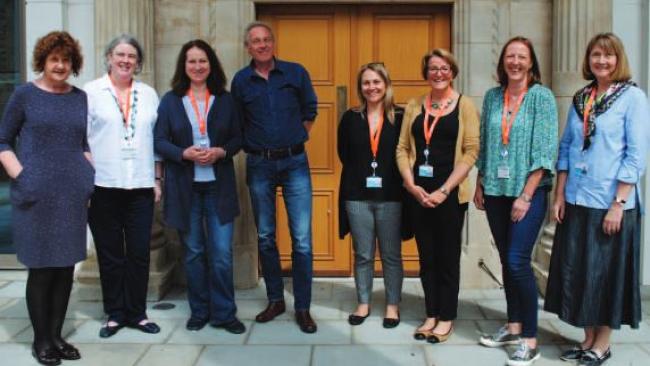
Fraser Battye
Fraser is an Intellectual Forum Senior Research Associate.
Fraser Battye is Head of Policy at the Strategy Unit, a multi-disciplinary NHS team devoted to applied intelligence, critical thinking and high-quality decision making.
Fraser has 25 years of public policy experience. He has worked at local, national and European level; in public and commercial settings; acting as analyst and advisor.
He is proud to be a generalist. Fraser has worked on topics as apparently unrelated as: the downsides of digital technology; neighbourhood renewal and deprivation; learning disability; regional economic development; sexual and domestic violence; policy responses to austerity; synthetic drug use; behaviour change; payment by results; and vocational training in rural areas.
There are two unwavering themes within this variety: Fraser cares deeply about inequality; and he believes wholeheartedly in the benefits of clear, critical thinking.
What are you working on now?
Predicaments! I'm mainly attracted to irreconcilable difficulties and irresolvable tensions. This is probably how I found my way into the NHS; and it’s certainly how I’ve come to be working on the topics currently on my plate. These include the balance between: community- and hospital- based services; the human elements of care and the promises of technology; treating problems and preventing them.
And, regardless of the specific topic, I'm always working on approaches to enhance creative, critical thinking. I take real joy from helping leaders, teams and organisations to see and address perennial challenges in fresh ways.
How has your career to date led to this?
This is a neat telling of a circuitous path, but my focus has changed from supplying evidence to helping people use it. I began in research and evaluation. Over time, I grew increasingly interested in how the evidence I produced got used (or not). So I moved ‘upstream’. Now I help decision makers use evidence to formulate policies, strategies, and programmes.
What one thing would you most want someone to learn from what you’ve done or are doing now?
Humility. For problems with any degree of complexity there isn’t a simple or single answer. Lesson one is to distrust anyone – including yourself – that thinks they have one.
It’s far better to act with curiosity and humility. Seek multiple perspectives and insights; think in systems and patterns; see wholes as well as parts. This is far more likely to bear fruit.
To do this well, you have to accept uncertainty, ambiguity and not knowing. This requires a paradoxical-seeming blend of modesty and confidence.
What do you think of ÌÀÍ·ÌõÔ´´ and the Intellectual Forum?
The NHS needs a flow of fresh ideas; and I personally crave stimulation and multi-disciplinary perspectives. So I'm delighted to be a part of the Intellectual Forum. It’s fantastic that ÌÀÍ·ÌõÔ´´ has created a place to come, contribute to and draw from.
You can meet the rest of the Intellectual Forum team or contact us via email.











